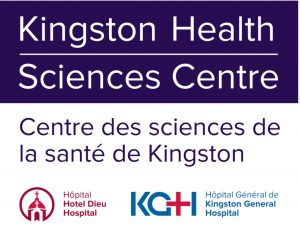Announcing the Winners of the Lung Cancer Innovation Challenge

MaRS and Merck Canada are pleased to announce the winners for the Lung Cancer Innovation Challenge. The challenge called for solutions that can enhance a lung cancer patient’s journey by reducing the time between diagnosis and treatment, enabling improved treatment outcomes, especially for priority patient groups such as rural and lower socioeconomic populations in Ontario.
Kingston Health Sciences Centre has won the grand prize of $100,000 and Princess Margaret Cancer Centre has won the runner-up prize of $50,000. Learn more about the winning ideas below.
THE GRAND PRIZE WINNER
Kingston Health Sciences Centre
Kingston Health Sciences Centre runs the Lung Diagnostic Assessment Program, a rapid assessment clinic for patients with suspected lung cancer in South Eastern Ontario. The team won the competition with their idea to launch an outreach clinic in the Lennox and Addington County General Hospital, a community hospital located in a rural region of South Eastern Ontario.
Through the outreach clinic, patients referred to the program for evaluation of a suspected diagnosis of lung cancer who live in Napanee or further west will have the opportunity to select the community hospital as the site at which their first consultation with a respirologist can take place, versus needing to travel to the KHSC. Patients will undergo initial diagnostic and staging investigations locally where possible with more complex and sophisticated procedures being coordinated centrally through KHSC where required.
THE RUNNER-UP
Princess Margaret Cancer Centre
The Lung Cancer Site Group at the Princess Margaret Cancer Centre – one of the top five cancer research centres in the world – came in second place with their proposal to significantly reduce the time between diagnosis and treatment for patients with advanced non-small cell lung cancer. Their idea proposes the use of a liquid biopsy versus the conventional diagnostic pathway of molecular testing of tumour tissue after imaging and biopsy.
The team proposes that this “blood-first” approach could enable faster turnaround time for molecular results, as blood samples can be processed while patients await their diagnostic tissue biopsy. Molecular information from liquid biopsies can help diagnose and discover molecular targets faster than with standard tissue biopsy and tissue testing, which could allow patients to start treatment faster than through the conventional diagnostic pathway.

